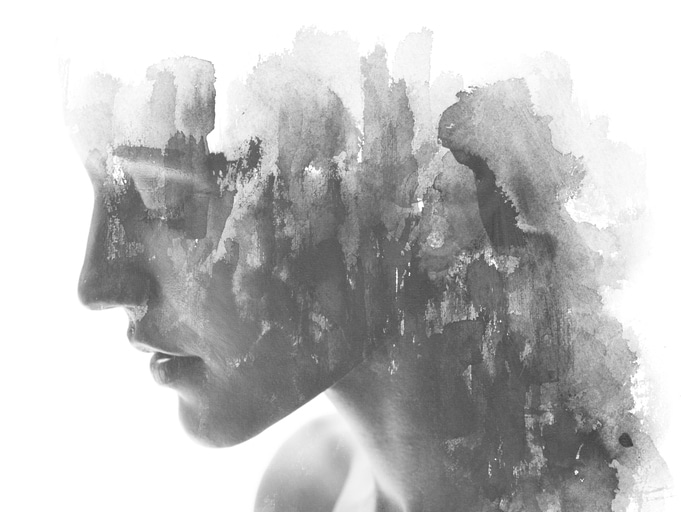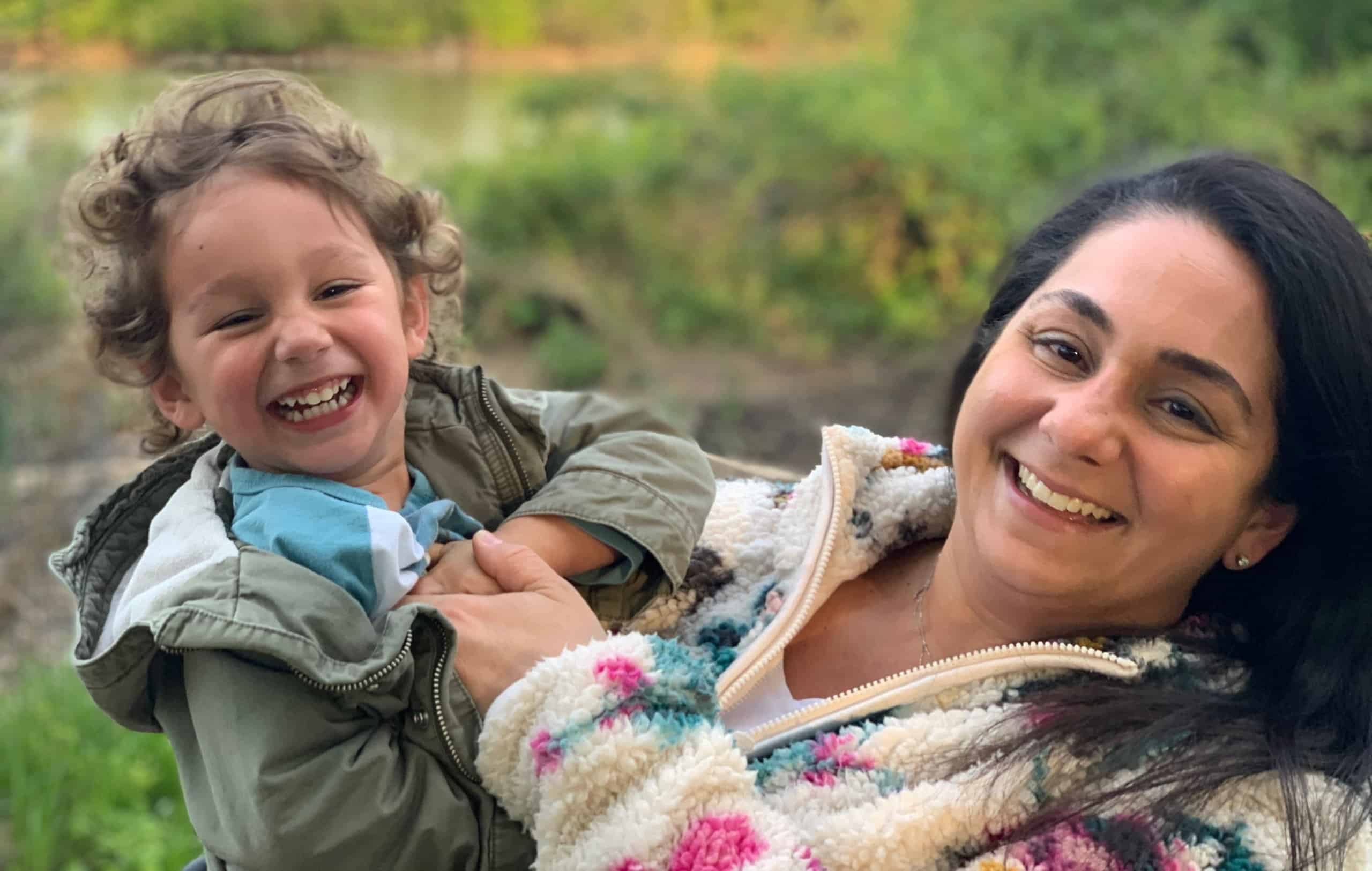“What are the moms at school going to say about this?” I thought last December, as I prepared to submit paperwork in support of Decriminalize Nature DC, a ballot initiative that would decriminalize natural psychedelics like psilocybin and ayahuasca in Washington, DC. Those moms knew me as the Budget Officer for DC’s Department of Energy & Environment—or simply as a fellow mother of young children struggling to keep up. What would they think if they knew of my activism on decriminalizing psychedelic plant medicines?
I was born in Washington, DC to two Iranian immigrants seeking the American dream. I grew up in an idyllic suburb of Minneapolis, Minnesota, and while we did not quite fit into Midwestern culture, my parents raised me to be resilient. I graduated with a degree in economics from Macalester College in Saint Paul, Minnesota, where I was captain and the number one singles and doubles player on the women’s tennis team. I received a graduate degree in management from the University of Denver, and I moved to Washington, DC in 2004.
No one really prepares you for adulthood, but I successfully navigated through the formative years of my 20s and early 30s, including bad apartments, bad boyfriends, the constant threat of being laid off during an economic downturn, losing a few friends and gaining new ones, multiple career shifts, and getting my second graduate degree in public policy from George Mason University. I was quickly checking accomplishments off my list.
By 2017, I was married to a man I consider my best friend whom I love deeply, and was pregnant with my second child. A couple months into my pregnancy I developed a severe case of sciatica, with chronic pain running down from my spine to my leg. The pain was so overwhelming that at the end of the day I was crawling up the stairs to go to bed, because I could not hold my body upright.
I was unable to feel “normal,” joyful, or even move in my daily life. I developed what is called “ante-partum” depression—depression during pregnancy. A pivotal moment during my pregnancy occurred during a routine prenatal check up. My regular physician was on vacation and a newer physician to the practice walked into the exam room. She asked me one simple question, “How are you feeling today?” Like a wave crashing down on me, I could not hold in my emotions anymore. I hadn’t realized the numbness I was feeling up until that point was actually depression, and only then realized that I had a major problem. The tears would not stop coming, and for some reason I kept apologizing. I felt so much shame that I was carrying a normal, healthy baby in the prime of my life, and yet did not feel happy. The aches and pains of a normal pregnancy are enough to make you lose your mind, but when mental health issues arise, it’s almost unbearable. Before I could even lift my head out of my hands, the doctor was handing me a prescription for an antidepressant, at the same time assuring me it was safe for me and the baby, and I could get off the medication once I delivered him.

While antidepressants are effective and have saved many lives, decades of research have shown an incomplete understanding of the neural basis for depression. Even with extensive brain imaging, researchers have only been able to conclude that depression affects many parts of the brain.1
This means that current treatments for depression amount to a shot in the dark. Hopefully coupled with talk therapy, a patient will be treated with pharmaceuticals through trial and error. This is a dangerous game to play with your brain: if incorrectly prescribed, some of these drugs can make a depressed, suicidal patient even more depressed and more suicidal, to the point that some actually take their own lives during their treatment .
Additionally, many of these drugs may take up to eight weeks to display effectiveness. Once this period of time has passed and the medication is deemed ineffective, patients must carefully taper off the medication under medical supervision. Potential side effects of getting off these drugs increased dizziness, disorientation, headaches, fatigue, insomnia, increased depression, and increased suicidal tendencies. Another factor to consider is the staggering risk of relapse once a patient is off of antidepressants. People who have had one episode of depression have a 50% chance of having a second after getting off antidepressants. Those who have had two episodes have an 80% chance of having another.2
After extensively researching these drugs, I decided against taking them. A new family of four, a shifting dynamic between my family, my husband, and my career, the inevitable identity crisis a woman experiences when she becomes a mother—and endless amounts of laundry—were enough to deal with. I did not want a short-term solution that caused me a negative long-term problem. I was desperate for a solution, but also unenthusiastic about the options presented to me.
After that point, my life spiraled out of control. My mild antepartum depression turned into severe postpartum depression, anxiety, paranoia, recurrent panic attacks, delusions, insomnia, self-harm, and suicidal thoughts. I would fantasize about how I could get to the roof of my building at work and what it would be like to jump. Every time I walked across the street I would envision a car turning the corner quickly and hitting me. I had panic attacks about once a week where I would punch my body. Toxic thought patterns of shame, self-hate, and worthlessness were deeply engraved in my brain. I was on a never-ending spiral of negativity and hopelessness. I would seek talk therapy and then find any excuse not to go.
One of the few friends that I opened up to about my struggle suggested I listen to the Joe Rogan Experience Podcast. In one episode, Rogan was interviewing mycologist and fungi advocate Paul Stamets, there to discuss the amazing benefits of psilocybin mushrooms. For three hours during a road trip with my family, I was fascinated by story after story of healing and science. At this point in time I was failing at every level: as a mother, wife, friend, sister, daughter, and colleague. I constantly wavered from anger to desperation to hopelessness. I had isolated myself from everyone and I simply wanted to die. But here was Stamets discussing how psilocybin could be a breakthrough treatment for depression. Maybe there was hope. In desperation, I decided to begin microdosing psilocybin mushrooms.
After only two days of an imperceptible amount of psilocybin, I began to feel human again. After two weeks of logging my dose and tracking emotions with carefully timed days off, I could quite literally feel my brain rerouting thoughts through different thought patterns. The way I spoke changed, the way I carried my body, my sense of smell and sense of taste. My interactions with people improved, and I was almost completely symptom free. I was amazed at how quickly I saw results; however, I was probably taking the biggest risk of my life. I was in possession of a Schedule I drug. I was breaking the law. The entire experience had me feeling conflicted. I was healing myself but I was also terrified of getting caught and losing. I quit microdosing a bit too early in the process of my rehabilitation, and a friend suggested I see an ayahuasca shaman. Again, in desperation for continued healing, I participated in a few ceremonies.
Since that time, my life has transformed. I not only feel like myself again, I feel a hyperawareness of myself. I am calmer and more compassionate, and I feel empowered to take on whatever challenge is in front of me. I feel empowered to tell my story in public. I am completely engaged in my life again and I am connected to my family again. My son Ramsey is now two years old, my daughter Lola is five, and my healing has been so profound and in such a short period of time, it’s hard to believe there was a time I did not want to live. Entheogenic plants and fungi empowered me take control and to make the necessary changes to save my life.

Our current system for treating disease is not working. Depression’s elusiveness is both unfortunate and worrisome as it ranks as the leading cause of disability worldwideand ranks third in the ten leading causes of the global burden of disease according to the World Health Organization. Invisible illnesses like PTSD, depression, anxiety, and addiction are difficult to treat. Entheogenic plants and fungi offer us a new solution to very troubling problems, and the research surrounding these naturally occurring substances is extremely promising.
In cancer patients, psilocybin has been extremely effective in aiding with the depression and anxiety that often accompanies cancer treatments. Eighty percent of the patients reported their symptoms of anxiety and depression faded with only one dose of psilocybin, and with the positive effects lasting as long as five years.3
Johns Hopkins Center for Psychedelic & Consciousness Research has published over sixty studies in scientific journals about this topic. Their research has shown groundbreaking results for treating addiction, smoking cessation, depression, and existential distress caused by terminal illness. The effort has been so successful that they are expanding their studies to determine the effectiveness of psilocybin as a therapy for opioid addiction, Alzheimer’s disease, post-traumatic stress disorder (PTSD), Lyme disease, and anorexia.
The senseless War on Drugs has perpetuated myths about these substances, and caused the end of all scientific research involving entheogenic plants and fungi for nearly fifty years. Medicines like naturally occurring dimethyltryptamin (DMT) found in ayahuasca are nontoxic, non-addictive, and can even help with neurogenesis—the regrowth and repair of neuronal damage often caused by many mental illnesses, including depression and PTSD.4
Washington, DC needs to support people who are seeking to heal themselves when no other solution presents itself. If entheogenic plants and fungus become the lowest level law enforcement priority, people can ritualistically and therapeutically heal themselves without fear of legal repercussions. This is a healthcare issue. This is a social justice issue. This is a trauma-interrupting issue. This is life changing and society shifting.
Citations
1https://www.ncbi.nlm.nih.gov/pmc/articles/PMC3619732/
2https://www.ncbi.nlm.nih.gov/pmc/articles/PMC2169519/
3https://www.nbcnews.com/health/mental-health/single-dose-psychedelic-drug-eased-cancer-patients-anxiety-depression-years-n1123451